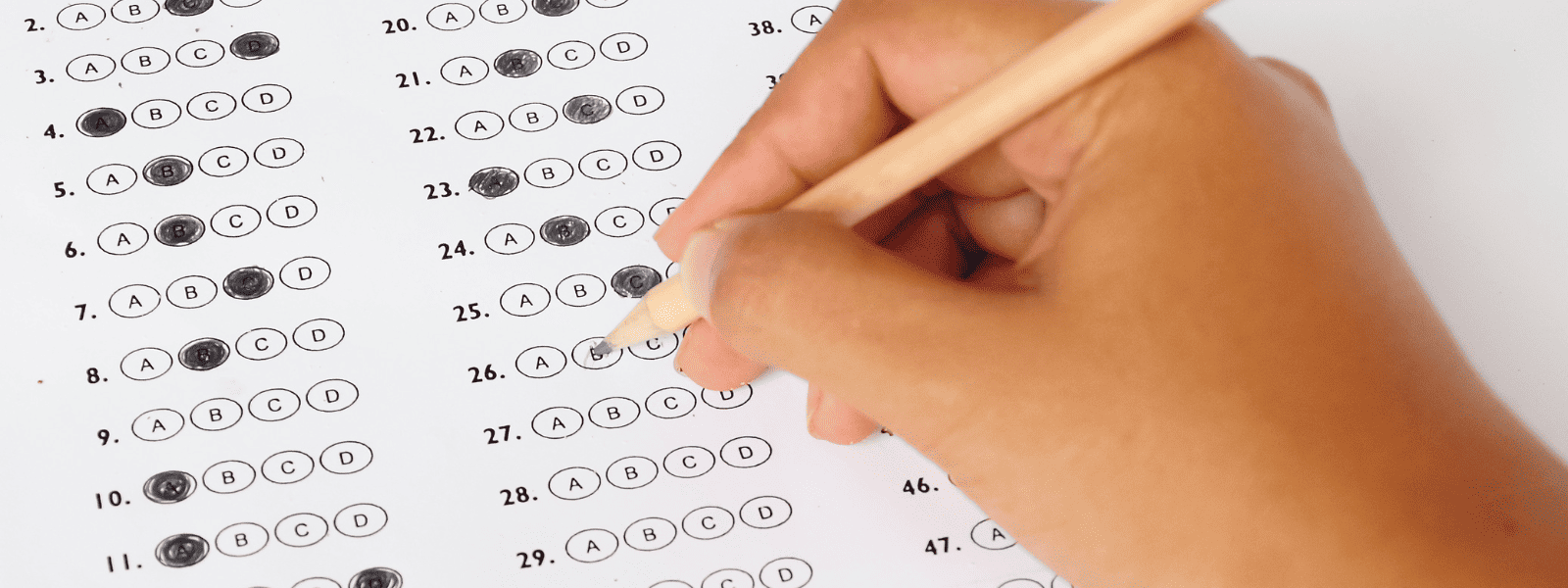Gearing Up for Standardized Testing, including the Milestones and the Iowa
Standardized testing can be stressful for all involved: students, teachers, school administrators and even parents who are left to deal with the consequences of their children’s anxiety. To better help you understand these tests, we’ve put together some information on the Georgia Milestones Assessment and the Iowa Assessments Exam, both of which measure students’ knowledge and skills in core content areas.
The Georgia Milestones Assessment
Spanning grades 3 through high school, this comprehensive assessment tests students on state-adopted content standards in math, science, language arts and social studies.
The tests are administered at the end of school (typically in April or early May) for third- through eighth graders. High schoolers take end-of-course assessments, regardless of grade level, in 10 subjects:
- Language Arts (Ninth Grade Literature & Composition and American Literature & Composition)
- Math (Algebra I, Geometry, Coordinate Algebra, and Analytical Geometry)
- Science (Biology and Physical Science)
- Social Studies (U.S. History and Economics/Business Free Enterprise)
To decrease the chances of being overwhelmed by even more testing, these measures take the place of a final exam for the course, accounting for 20% of the students’ final grade in that class.
The Iowa Assessments Exam
Having replaced the Iowa Test of Basic Skills (ITBS) and Iowa Test of Educational Development, the Iowa Assessments are designed to measure K-12 students’ knowledge in reading, math, science, social studies and language arts. The new format is believed to better align with both the Iowa Common Core Standards and the Smarter Balanced Assessment exam.
There are 10 sections on the exam covering:
- reading
- writing
- math
- science
- social studies
- vocabulary
- spelling
- capitalization (N/A for high schoolers)
- punctuation (N/A for high schoolers)
- computation (N/A for high schoolers)
Depending on the grade level, there are typically 240-270 questions on the exam, which takes 3 to 3.5 hours to complete. (Third graders and below are given two additional subtests in listening and word analysis.)
Taking into account that the national average in all subtests is 50%, scores are reflected in national percentile rank (NPR). If your student scores a 71% on the reading portion, for example, then they scored as well as or higher than 71% of their same-grade peers in the national norm group.
Tips for Better Standardized Test Taking
Beyond the preparation your student can do in advance to prepare for standardized testing (e.g., reviewing sample questions, studying subject material, taking practice tests, fueling up with brain-boosting foods and getting plenty of rest), there are some day-of tips that can help alleviate some stress and increase performance. Share these with your student:
1. Mentally prepare in your seat.
Take a few deep breaths, listen carefully to the administrator’s instructions and visual yourself moving through the exam with knowledge, confidence and ease. If you’re feeling particularly anxious, wiggle your toes and fingers to release some of that nervous energy.
2. Read the directions and skim the test before beginning.
It’s vital to ensure you understand the instructions and how to pace yourself in order to complete the test in the time allotted. By reviewing each section of the test first, you’ll get a general idea if you need to guess on a question you’re unsure of in order to move on in a timely manner.
3. Do a memory dump on scrap paper.
Simply jotting down important facts, figures and formulas that you’ve studied can help you focus on the test by freeing up your mind.
4. Answer every question.
Unless your teacher tells you otherwise, be sure to answer every question—even if you’re not sure. With multiple choice questions, sometimes you can at least narrow down your responses to increase your chances of guessing correctly.
5. Finish early and review your answers.
If you pace yourself and don’t allow yourself to get stuck on one particularly difficult question, you can complete the test early, giving you time to double-check your responses. This is also a good time to proofread any written responses and review them for clarity, grammar, spelling and punctuation.
Resources to Help Prepare Your Student for Standardized Testing
Looking for study materials and grade-specific practice tests? Check out these resources:
1. Iowa Assessments Exam – Practice Tests and Resources
Give your child the opportunity to view and practice the exam format and types of questions they can expect to see on the actual test. Download a full-length Iowa Assessments practice test with more than 300 questions from Mercer Publishing.
2. Georgia Milestones Assessment – Study/Resource Guides by Grade
The Georgia Department of Education’s website hosts study/resource guides by grade (also available in Braille) which contain practice questions and learning activities for each content area. Parents and students can see depth-of-knowledge exam items, scoring rubrics, exemplar responses and contest descriptions for each subject.
3. Test Prep and Educational Benchmarks by Grade Level
https://www.whiteheadlearninggroup.com/academic-milestones
Whitehead Learning Group offers an extensive collection of educational and social benchmarks sorted by grade level, as well as strategies for parents looking to help their children prepare for standardized tests.
4. Personal training for test-taking and cognitive skills
One-on-one brain training company LearningRx offers cognitive skills training and test prep via virtual and in-person brain training. Skill development for test-prep brain training covers instruction and training on study habits, reading and writing, logic & reasoning, sustained attention, mental processing, and short- and long-term memory.
Read More: Tips for Better Test-Taking >>
Mindset About Standardized Testing
Now that you better understand the Georgia Milestones Assessment and the Iowa Assessments Exam, put these tips and resources to use in helping your student prepare mentally, emotionally and academically. Be sure to focus on the importance of effort, not outcome, and you’ll help alleviate some of the pressure that comes with taking standardized tests.







